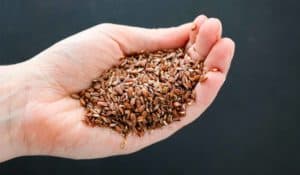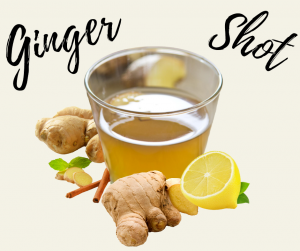Let’s talk about the nine-character word that’s responsible for your good or bad health: Digestion. First, we will discuss what causes Poor Digestion and then we will tell you How to Speed up Digestion? and Some Best foods to improve Digestion.
Proper digestion will help to absorb most of the nutrients or will take out the best out of food but if you have poor digestion, your most of the food will be wasted, or nutrients will not be absorbed into the body.
Common Causes for Poor Digestion:
If you are eating food that you are sensitive to, that will be provocative to the immune system. The immune system will release inflammatory molecules and compounds that signal to other immune cells to come to the area and kick butt. These new cells also release inflammatory and signaling compounds, and the beat marches on. Where there is inflammation, there will be a bit of bloating as your body pulls water into the system to quell this fire. This is in part why bloating is such an issue. We are often eating foods that are wrong for our bodies, our gut flora, our immune system and flaring up the gut lining. Food allergies, Poor diet, Viral or bacterial infection, Genetic causes, Lifestyle choices, Medication side effects, Aging are some other reasons for Poor Digestion.
Source – Link.
So, How to Speed up Digestion?
Following are the Best foods to improve Digestion.
1. Dark Green Vegetables
On the top of foods to improve digestive system list is Green veggies. Green Veggies are an exceptional source of insoluble fiber. This kind of fiber adds bulk to your stool, hastening its speed through your digestive tract. Green vegetables are also a fantastic source of potassium, which may help alleviate constipation by enhancing muscle contractions into your digestive tract. One of the most common dark green veggies that offer this benefit is spinach, Brussels sprouts, broccoli, and other leafy greens. Moreover, a 2016 study revealed unusual glucose found in green leafy vegetables which feed great bacteria in your gut. This glucose is thought to aid digestion while also impairing a number of undesirable bacteria that can cause illnesses. Green vegetables play a crucial, vital role in healthy digestion by providing fiber and magnesium into your diet. It also feeds good bacteria in your gut.
2. Apples
Apples are a rich source of pectin, a soluble fiber. Pectin bypasses digestion on your small intestine and is then broken up from the bacteria in your colon. It increases stool volume and is therefore commonly utilized to solve nausea and constipation. It also reduces the probability of intestinal ailments, as well as inflammation of the colon. Even the pectin found in apples will help increase stool mass and movement through your digestive tract. It may also reduce inflammation inside your colon.
3. Chia Seeds
Chia seeds are an excellent source of fiber, which causes them to produce a gelatin-like material in your stomach, once absorbed. They function like a prebiotic, encouraging the growth of healthful bacteria in your gut and therein contributing to healthy digestion. Their fiber material also can help promote bowel regularity and sturdy stools. The fiber material of chia seeds might assist digestion by encouraging the growth of probiotics in your gut and allow you to be regular.
4. Papaya
The luscious tropical fruit berry includes a digestive enzyme called papain. It helps the digestive process to break down protein fibers. While not mandatory in your diet plan, it can improve the digestion of the protein. Papain decreases the symptoms of irritable bowel syndrome (IBS), such as bloating and constipation. It is frequently used as the primary enzyme in digestive supplements because of its gastrointestinal capacities. Papaya comprises papain, which can be an essential digestive tract that contributes to the healthy digestion of proteins.
5. Whole Grain
To be categorized as a whole grain, then it must contain 100 percent of the kernel like the bran, germ, and endosperm. Favorite fiber-packed entire grains include oats, quinoa, farro and products made from whole wheat. The fiber found in such grains may help improve digestion in 2 ways. First, fiber assists add bulk to your stool and can reduce constipation. Secondly, a few grain fibers act like prebiotics and help feed healthy bacteria in your gut. On account of their high fiber content, whole grains can support nutritious digestion by adding bulk to the stool, reducing constipation and feeding your healthy gut bacteria.
6. Beets
Beetroot, otherwise known as beets, is an excellent source of fiber. 1 cup (136 g ) of beets contains 3.4 g of fiber. ) Fiber arouses digestion and leads into your colon, where it feeds the gut bacteria or adds bulk to a stool — which improves digestion. A few popular approaches to eat beets consist of roasted, mixed in a salad, pickled or blended into a smoothie. Beetroot’s nutrients can help improve digestion by assisting feed friendly gut bacteria and adding more bulk to your stool.
7. Ginger
Ginger is a standard ingredient in Eastern medicine that helps enhance digestion and prevent nausea. Many pregnant women use it to deal with morning sickness. From a digestion perspective, this yellowish root was proven to accelerate gastric emptying. By moving food from the stomach to a gut faster, ginger reduces your chance of heartburn, nausea and stomach distress. Ginger appears to expedite food’s motion through your abdomen, easing specific side effects associated with slow digestion. Additionally, it has been used to treat nausea, such as morning sickness during pregnancy.
8. Yogurt
Yogurt is made from milk that’s been fermented, usually by lactic acid bacteria. It includes friendly bacteria known as probiotics, which are good bacteria that live in your digestive tract and can help improve digestion, so maintaining your gut healthy. While probiotics naturally happen in your stomach, boosting your intake through foods such as yogurt can ease digestion. Probiotics help in digestive issues, such as bloating, constipation and diarrhea. They also have been demonstrated to improve the digestion of lactose or milk sugar. But not all of the yogurt comprises probiotics. When shopping, be sure to look for “live and active cultures” about the package? Yogurt contains probiotics, which may assist digestion by increasing healthy bacteria in your digestive tract.
9. Peppermint
Peppermint, a part of this genus Mentha, develops commonly throughout the planet. Its oil is produced from the critical oils found in peppermint leaves and has been shown to improve digestive issues. The oil comprises a compound called menthol, which might ease symptoms of IBS, such as bloating, stomach discomfort and bowel movement issues. The oil seems to have a relaxing effect on the muscles of the digestive tract, which may improve digestion. Peppermint oil can also facilitate indigestion by accelerating the food’s movement throughout your digestive system. Peppermint has been demonstrated to enhance digestion. It can alleviate IBS symptoms and push on food more quickly through your digestive tract.
10. Sauerkraut
Sauerkraut is made of shredded cabbage that’s fermented with lactic acid. Due to fermentation, it contains probiotics. Research suggests that a half-cup (71-gram) serving of sauerkraut could comprise up to 28 different bacterial strains that help your intestine by consuming good bacteria. Sauerkraut is a rich source of probiotics and contains enzymes which help with digestion by breaking down nutrients into more readily digestible molecules.
Final Words
Digestive issues may be hard, but specific foods may help in easing uncomfortable symptoms. Research supports eating fermented foods, like yogurt, kimchi, and tempeh, to boost probiotics in your diet, which can enhance gastrointestinal health. Fiber-rich foods, such as dark green veggies, whole grains, and chia seeds, also play a role in digestion by assisting food move through your system more efficiently or rapidly. If you have problems with your digestion, consider adding some of those 19 foods into your daily diet.






